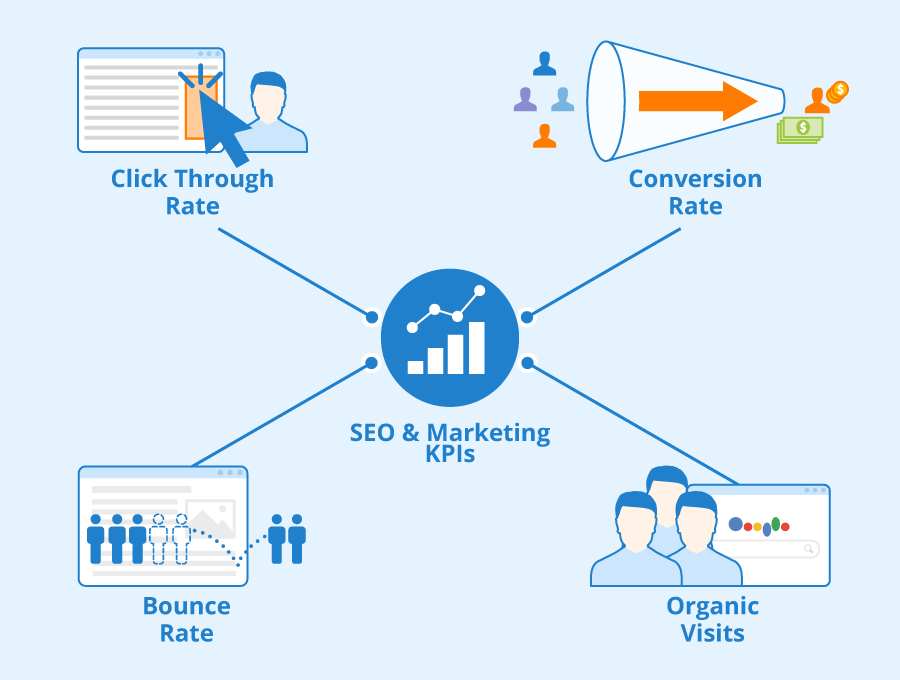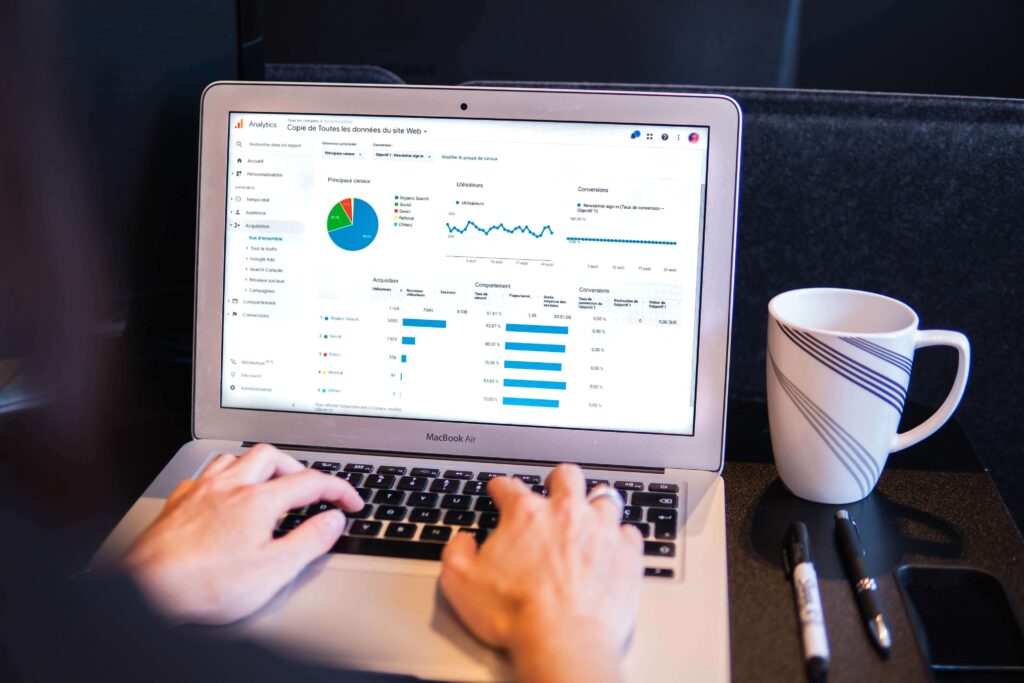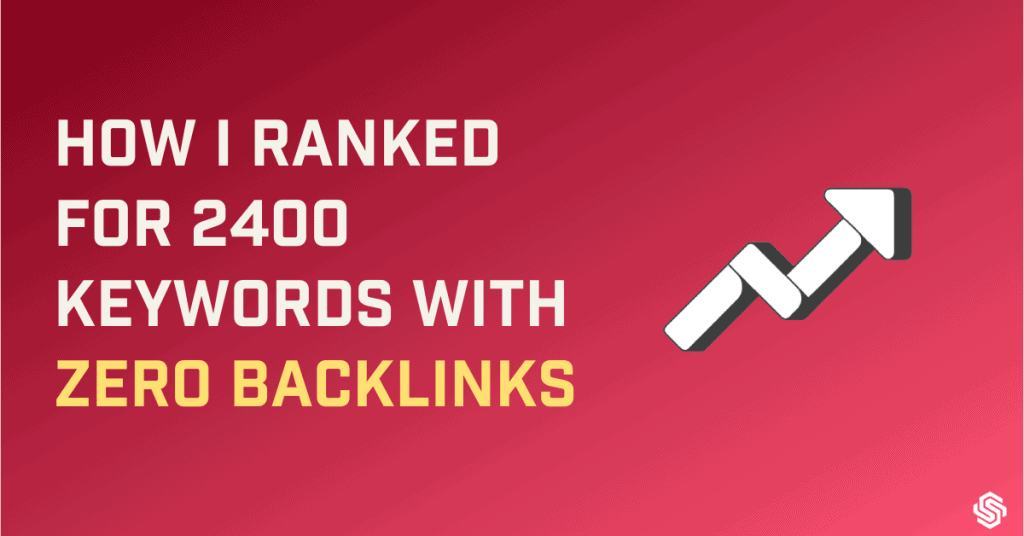
Key Takeaways for you
| – KPIs (Key performance indicators) in SEO are quantifiable measures of performance that help evaluate your SEO success. – Tracking KPIs helps you to understand progress, and areas of improvement, measure your ROI, and prioritize efforts. – KPIs are subjective and situational so you need to identify the right metrics for your goal. – Keywords ranking, content efficiency, and search visibility are some of the important KPIs. – KPIs should be regularly monitored and adjusted as per the SEO strategy. – You can use tools like Google Analytics to track and analyze KPIs for SEO. |
Wait, first of all, what is a KPI in SEO?
KPI stands for Key Performance Indicator. It is a quantifiable measure of performance across various factors that influence a specific objective. They provide the data required to gauge progress and devise new goals and strategies to achieve them.
Whether it is marketing, HR, sales, organizations, or individuals, anyone who has goals and wants to achieve them, needs to assess whether what they are doing is taking them toward their desired goals.
Am I doing this right? How will I know what I have done so far has yielded any tangible results?
KPIs will tell you.
What is a KPI in SEO?
KPIs in SEO are the metrics that help you evaluate your SEO performance. They can be metrics that show where you are doing great and those that show you areas for improvement.
There is no way to know how your SEO efforts are turning out, without defining, analyzing, and assessing the SEO KPIs that are essential for your goals.
What are the benefits of tracking KPIs?

Every business needs its own different set of KPIs. But the benefits they reap are the same.
To measure progress
Are your efforts aligned with your goal? You can measure whether you are driving sufficient traffic, whether the conversions are increasing, and whether you are beating your competition. The ultimate goal is to improve brand visibility and awareness to increase sales. KPIs help you identify these.
To identify areas for improvement
If you do not know where you are going wrong, you will repeat your mistakes and prevent progress. So it is not sufficient that you see where you are winning, you also need to check where you are not.
If you want to stay on top of the game, you need to identify what you are lacking and work on them.
To measure the ROI.
If you want to check whether your SEO strategy is directly impacting your revenue and profits, you can track the metrics that matter the most and where your money is going using tools like Google Analytics.
To prioritize efforts
Once you identify the right metrics, you can assess what works and what does not work for you. Accordingly, you can prioritize where you are investing your time, energy, and resources so that efforts do not go in vain.
You can use KPIs to decide what parts of your strategy you need to keep going at, what to improve, and what to let go of altogether.
That’s all nice to hear about but, here comes the but…
KPIs are subjective and situational.
If you ask ten experts what the top KPIs are for SEO, you are bound to get ten different answers that continue to keep you guessing.
So don’t ask 10 experts! Read this article as I have curated out of the best of the best answers from experts to give you one list.
11 most important KPIs to measure SEO success

Keyword Rankings
Keyword Rankings are important because they provide minute insight into which keywords are attracting more traffic and why. This insight can be used to understand how your content is performing and what you should and should not be doing with it.
Due to the evolution of search, pages can rank for various different keywords. Increased keyword rankings translate to increased incoming traffic and hence more business.
Content Efficiency
Content efficiency is not just about optimizing content for search engines but also achieving your company’s goals for that content. This includes how much content you publish, and how much content you update and optimize as opposed to how efficiently this content is getting you your goals and predicted ROI.
When you use content efficiency as a KPI, you would want to improve your content strategy and employ data-driven decision-making in what to create and what to optimize. It is a core metric to know what to build and the impact it is going to make.
Search Visibility
Search visibility is another important KPI. It refers to how many users got to see your pages in the search results.
This is only possible if you have ranked on the first page and ranked high! No one bothers to click on the second page of Google.
But remember that not all people who see your content are engaging with it. For that reason, search visibility alone does not suffice. It needs to be combined with other SEO metrics to determine significant values, like organic click-through rates.
Organic click-through rate
Click-through rate is the measure of the number of people who clicked on your content in the search results in relation to your search visibility.
If 10 people saw your page in the search results, that counts as your visibility. Now suppose 2 out of those 10 people clicked on the page. Then (2/10) x 100, i.e. 20% is the click-through rate.
If your visibility was 20 and still only 2 people clicked on the page, then the click-through rate would have been 10%.
You need this data to know whether your pages are driving clicks. If there is high search visibility with lower click-through rates, then you need to work on optimization. You should be working on making the title tag and meta description more attractive as they are the first two things users see in the search results.
Page Speed
Page Speed is one of the easiest metrics to track. Many things can slow down the loading time of your web pages, like large image sizes, a lagging server, the use of too many plugins, etc.
This translates to a bad user experience and people end up leaving the pages before they get a chance to absorb your content. That is why you must keep track of your Page speeds and ensure it is optimized.
Backlinks
Backlinks are hyperlinks from other websites leading to your web pages and website. They serve as credibility votes by other domains to your website.They are one of the top ranking factors and no marks for guessing they are important KPIs too!
You must track the health of your backlink profile in comparison to your competitors. The backlink metrics you should be looking out for are:
- Total number of backlinks
- The number of referring domains.
- The number of links earned
- The number of links lost.
Organic Traffic
It is a vital search metric that measures how many users visit your site after finding it in the search results. This will let you know how much of your traffic is coming through SEO. You can then determine how much you can depend on your SEO success compared to your other strategies for driving traffic.
Conversions
It is one of the most important KPIs for sales, leads, subscriptions, and anything and everything that brings money to your business. It is also the most straightforward way to demonstrate SEO success.
Conversions and conversion rates are to be tracked to analyze the efficiency of your SEO efforts. You need to mark the desired targets before you implement an SEO strategy and set up conversion tracking using Google Analytics.
Customer Lifetime Value (CLV)
CLV is a metric that measures the total predictive profits you earn from one single customer during the course of their relationship with your business.
This shows the long-term value of a visitor that has converted into a customer. It also helps businesses identify the SEO activities that are resulting in financial impacts.
It is more important because it is a unifying metric, meaning it is not only useful in the SEO context but also other teams and departments can use it to fine-tune their decisions. CLV forces you to care about customer success, support, growth, and renewals.
Revenue per visitor
There are just too many SEO metrics out there and you can easily get caught up in those that may not be as important for your business goals. If you are a business then your end goal is to generate revenue.
You need to consider revenue per visitor as a more crucial metric than others because money is involved. It reflects the true business value.
You can calculate this by multiplying the conversion rate to turn organic traffic into leads and the conversion rate to turn those leads into customers by the average revenue per customer to know the revenue per organic visitor.
If 1% is the conversion rate of traffic to leads, 20% is the conversion rate of leads to customers, and Rs.1000/- is the revenue per customer, then the average revenue per customer is 0.01x 0.20 x 1000 = Rs.2/-
Check more about the important SEO KPIs
Return on Investment
Return on Investment or ROI is the amount of money you have earned back from the money you have invested. Naturally, a positive ROI is your SEO goal. This metric confirms that the time and resources spent on content optimization, website building and maintenance, and other campaigns related to SEO have been worth it.
However, it is a difficult metric to measure because it can take an uncertain amount of time for you to see tangible returns.
For example, if you have spent Rs.1000/- for publishing a piece of content, checking the ROI as soon as you publish will certainly give you a negative value. But instead, if you give it a gestation period, say for six months.
Imagine you generated Rs.1200/- from it.
Subtract the initial cost of investment from the revenue generated.
(1200-1000 = 200)
You have made a profit of Rs.200/-.
Now your ROI is (Profit/Initial investment)%, in this case, 20%.
The difficult part here is to determine how long you need to wait for a meaningful result. You can set targets and measure ROI on a regular basis.
Read more about the Return on Investment KPI for SEO
Conclusion
Those were the KPIs I thought were important for SEO and business. The best thing to do is pick your set of KPIs and stick to them. If you think you will track and monitor everything, you have another thing coming.
Tracking these Key Performance Indicators is one thing, but using the data and optimizing your SEO strategy is the bigger task. But whatever they are, now is a good time to start tracking and analyzing them.
What are the KPIs you like to track?
Let me know in the comments.


